The Podcast for
Permanent Profitability
When you implement Profit First and begin immediately allocating at least 1% of your income deposits to profit – you put yourself in that awesome top 17% category of small businesses with CASH IN THE BANK to correlate to their profitability.
The Podcast for
Permanent Profitability
When you implement Profit First and begin immediately allocating at least 1% of your income deposits to profit – you put yourself in that awesome top 17% category of small businesses with CASH IN THE BANK to correlate to their profitability.
Welcome to Profit First Nation
Start Your Journey Here
New To Profit First?
Start With These Episodes
Episode 111 – Automate Your Profit First Allocations with NorthOne – The Bank that Embraces Profit First!
Rejoice! NorthOne, the bank that embraces Profit First, is here to automate your Profit First allocations. Join co-founder and CEO, Eytan Bensoussan, as he walks us through how to use NorthOne’s sub-a... ...more
Profit First 101
May 27, 2022•1 min read
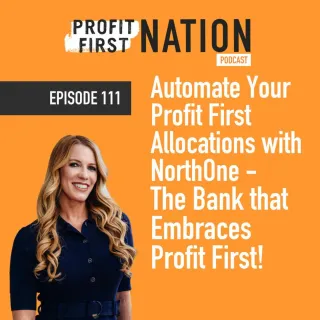
Ep. 107 – Money Mindset and Practical Principles with CPA and Mastery-Certified Profit First Professional, Wendi Hall
In this episode, we are joined by Wendi Hall, CPA and Mastery-Certified Profit First Professional, as she shares her signature “Wendisms” for practical and thoughtful principles around money and minds... ...more
Profit First 101
May 09, 2022•1 min read
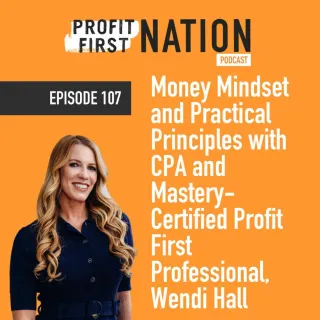
Ep. 96 Profit First Done Right: Clearing Up Misconceptions and Naysayers
Don’t let naysayers and misconceptions about Profit First hold you back from achieving permanent profitability in your business. Join us as we set the record straight and show you how to do Profit Fir... ...more
Profit First 101
February 10, 2022•1 min read
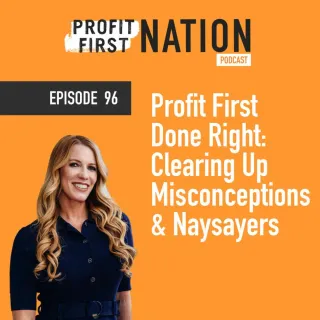
Ep. 79 Maximizing Profitability through Probability and Efficient Action
In this episode, we explore the importance of probability in achieving long-term profitability in business. Our guest emphasizes the need to let a proven system work while spending brainpower on diffe... ...more
Profit First 101
October 13, 2021•1 min read
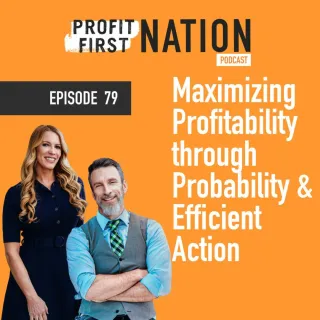
Ep. 73 Maximize Your Pricing for Profitability: The Link Between Pricing and Margin
In this episode, we explore the link between pricing and profitability in a business. Our guest emphasizes the importance of maximizing pricing to achieve a healthy margin, which is a critical factor ... ...more
Profit First 101
September 01, 2021•1 min read
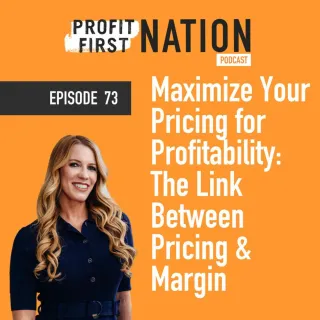
Ep. 58 Diving Into Mike’s Inbox: Business Debt, Owner’s Comp, and More Profit First Questions Answered
In this episode ending in “-8,” we dive into Mike’s inbox and answer listener emails on various Profit First topics. We discuss the importance of defining your lifestyle through owner’s compensation, ... ...more
Profit First 101
May 19, 2021•1 min read
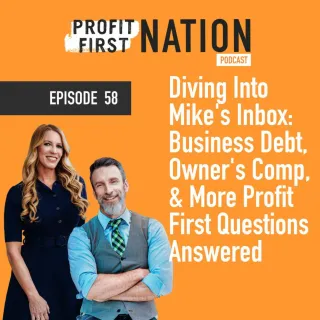

Episode 111 – Automate Your Profit First Allocations with NorthOne – The Bank that Embraces Profit First!
Rejoice! NorthOne, the bank that embraces Profit First, is here to automate your Profit First allocations. Join co-founder and CEO, Eytan Bensoussan, as he walks us through how to use NorthOne’s sub-a... ...more
Profit First 101
May 27, 2022•1 min read

Ep. 107 – Money Mindset and Practical Principles with CPA and Mastery-Certified Profit First Professional, Wendi Hall
In this episode, we are joined by Wendi Hall, CPA and Mastery-Certified Profit First Professional, as she shares her signature “Wendisms” for practical and thoughtful principles around money and minds... ...more
Profit First 101
May 09, 2022•1 min read

Ep. 96 Profit First Done Right: Clearing Up Misconceptions and Naysayers
Don’t let naysayers and misconceptions about Profit First hold you back from achieving permanent profitability in your business. Join us as we set the record straight and show you how to do Profit Fir... ...more
Profit First 101
February 10, 2022•1 min read

Ep. 79 Maximizing Profitability through Probability and Efficient Action
In this episode, we explore the importance of probability in achieving long-term profitability in business. Our guest emphasizes the need to let a proven system work while spending brainpower on diffe... ...more
Profit First 101
October 13, 2021•1 min read

Ep. 73 Maximize Your Pricing for Profitability: The Link Between Pricing and Margin
In this episode, we explore the link between pricing and profitability in a business. Our guest emphasizes the importance of maximizing pricing to achieve a healthy margin, which is a critical factor ... ...more
Profit First 101
September 01, 2021•1 min read

Ep. 58 Diving Into Mike’s Inbox: Business Debt, Owner’s Comp, and More Profit First Questions Answered
In this episode ending in “-8,” we dive into Mike’s inbox and answer listener emails on various Profit First topics. We discuss the importance of defining your lifestyle through owner’s compensation, ... ...more
Profit First 101
May 19, 2021•1 min read
Mindset
8 Episodes
Ep 151 Relish Your Ownership
In this episode of Profit First Nation, Danielle discusses the importance of relishing your ownership and maintaining a balance between personal and business finances. ...more
Mindset
December 19, 2023•2 min read
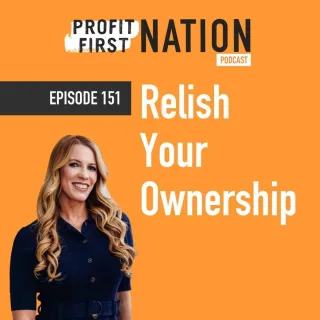
Ep 146- Danielle’s Modus Operandi
In this episode of Profit First Nation, host Danielle Mulvey reveals her seven key principles that she consistently applies to her business operations. She shares personal anecdotes and practical exam... ...more
Mindset
November 14, 2023•1 min read
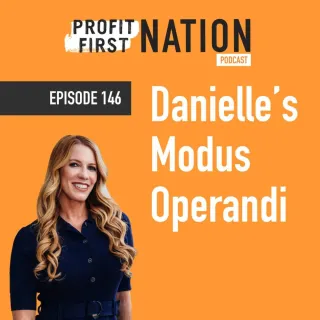
Ep. 97 The Business Multiplier: Coudray’s Law for Profitable Growth
Join us as we sit down with Mastery-certified Profit First Professional Coach, Mark Coudray, to learn about his business multiplier theory, Coudray’s Law. With his no-nonsense and direct approach, Mar... ...more
Mindset
February 17, 2022•1 min read
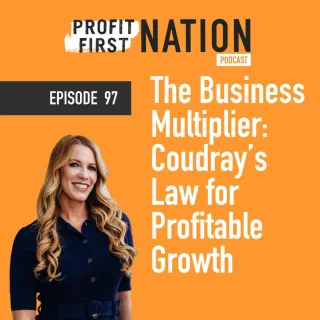
Ep. 93 Never Budget Again: A Radical Approach to Business Finance with Wendy Barlin
Are budgets the bane of your existence? Mastery-certified Profit First Professional and CPA, Wendy Barlin, is here to share a radically brilliant notion: Never Budgeting Again. ...more
Mindset
January 20, 2022•1 min read
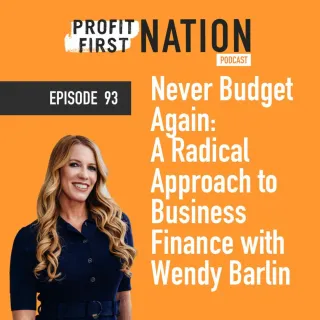
Ep. 83 The Power of Sales State: How to Maximize Your Performance and Drive Sales
Do you struggle with sales and feel like you’re not a “natural” salesperson? In this episode, we dive deep into the power of sales state and how to leverage it to maximize your performance and drive s... ...more
Mindset
November 11, 2021•1 min read
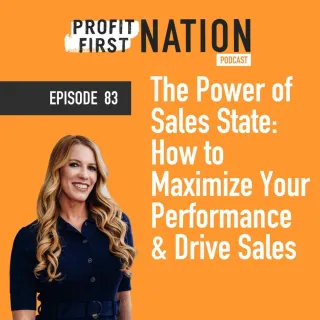
Ep. 68 Intercept Your Behavioral Paths to Achieve Financial Freedom
Join Mike, Danielle, and certified Profit First Professionals as they discuss the importance of publicly committing to the Profit First method and intercepting harmful financial behaviors. Learn how t... ...more
Mindset
July 29, 2021•1 min read


Ep 151 Relish Your Ownership
In this episode of Profit First Nation, Danielle discusses the importance of relishing your ownership and maintaining a balance between personal and business finances. ...more
Mindset
December 19, 2023•2 min read

Ep 146- Danielle’s Modus Operandi
In this episode of Profit First Nation, host Danielle Mulvey reveals her seven key principles that she consistently applies to her business operations. She shares personal anecdotes and practical exam... ...more
Mindset
November 14, 2023•1 min read

Ep. 97 The Business Multiplier: Coudray’s Law for Profitable Growth
Join us as we sit down with Mastery-certified Profit First Professional Coach, Mark Coudray, to learn about his business multiplier theory, Coudray’s Law. With his no-nonsense and direct approach, Mar... ...more
Mindset
February 17, 2022•1 min read

Ep. 93 Never Budget Again: A Radical Approach to Business Finance with Wendy Barlin
Are budgets the bane of your existence? Mastery-certified Profit First Professional and CPA, Wendy Barlin, is here to share a radically brilliant notion: Never Budgeting Again. ...more
Mindset
January 20, 2022•1 min read

Ep. 83 The Power of Sales State: How to Maximize Your Performance and Drive Sales
Do you struggle with sales and feel like you’re not a “natural” salesperson? In this episode, we dive deep into the power of sales state and how to leverage it to maximize your performance and drive s... ...more
Mindset
November 11, 2021•1 min read

Ep. 68 Intercept Your Behavioral Paths to Achieve Financial Freedom
Join Mike, Danielle, and certified Profit First Professionals as they discuss the importance of publicly committing to the Profit First method and intercepting harmful financial behaviors. Learn how t... ...more
Mindset
July 29, 2021•1 min read
About Profit First Nation
You are here because you have kicked operating your business “check-to-check” to the curb. You are here because you are sick and tired of working too hard and putting too much at risk for little to no reward.
You are here because you realize you cannot continue to operate your business like an ostrich with your head in the sand when it comes to your company’s financials.
You are here because by leveraging Profit First as a cash management system for your business you are on a path to permanent profitability. You are here because you are a top 17%-er entrepreneur.
As a top 17%-er, you represent the “Profit First” percentage of businesses that are not operating check-to-check and have money in the bank to correlate to your profitability.
When you implement Profit First and begin immediately allocating at least 1% of your income deposits to profit – you put yourself in that awesome top 17% category.
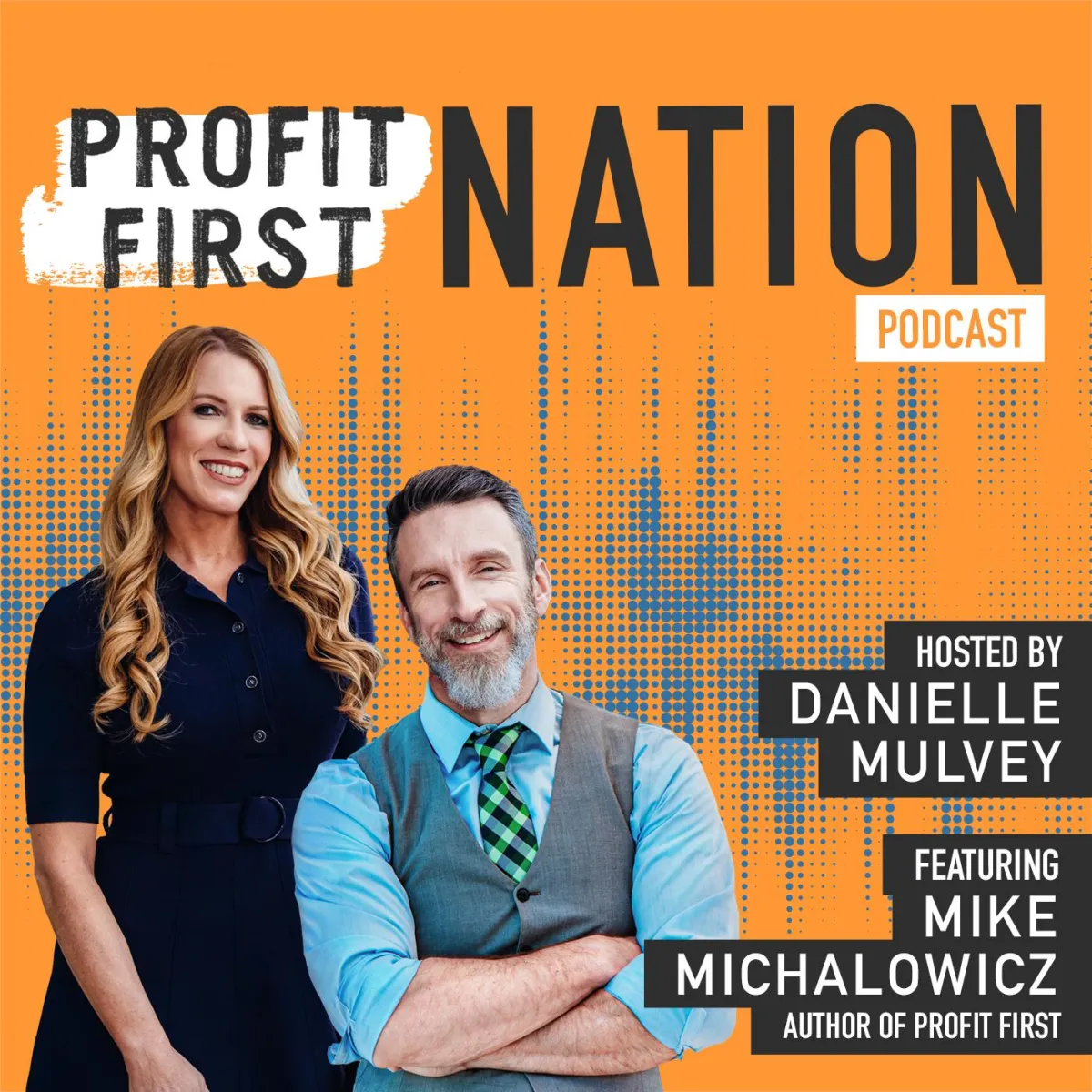
Profit First Nation Podcast
Latest Episodes
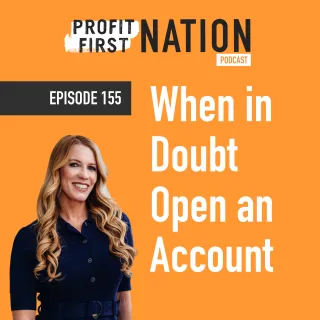
Ep. 155 - When in Doubt Open an Account
New Blog Post Description ...more
Uncategorized
July 17, 2025•1 min read
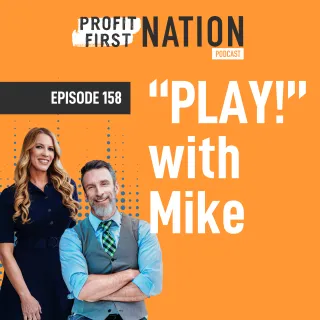
Ep. 158 – PLAY!
Join us on Profit First Nation podcast as we explore playful leadership with Profit First author Mike Michalowicz. Learn how incorporating play into your leadership style can strengthen team bonds, bo... ...more
Uncategorized
June 20, 2025•1 min read
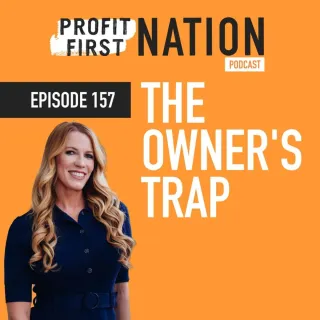
Ep. 157 - The Owner's Trap
Welcome to another insightful episode of Profit First Nation. Today, the focus is on avoiding the owner's trap—a common pitfall where business owners become too central to their company's operations, ... ...more
Uncategorized
October 02, 2024•3 min read
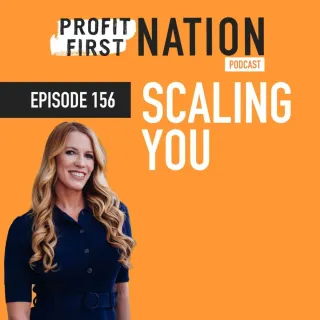
Ep. 156 - Scaling You
Welcome to Episode 159 of Profit First Nation! In this episode, we delve into the critical steps required to scale your business by focusing on building an unstoppable team. If you’re ready to transit... ...more
Uncategorized
October 02, 2024•3 min read
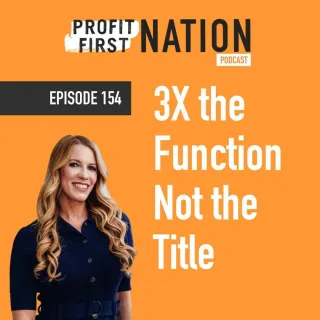
Ep. 154 – 3X the Function, Not the Title
In this latest episode of Profit First Nation Podcast, we are thrilled to bring to the forefront a concept that could fundamentally change how you invest in and evaluate your team. ...more
Uncategorized
April 30, 2024•2 min read
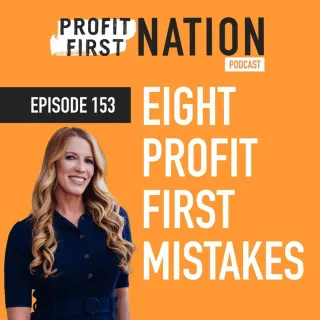
Ep. 153 – 8 Profit First Mistakes
In this episode, we dive deep into the world of Profit First and uncover the top 8 mistakes entrepreneurs often make when implementing this revolutionary financial system. Join us as we discuss how to... ...more
Uncategorized
April 23, 2024•3 min read
The Profit First Nation Blog
Latest Posts

The Profit First Quiz Edition: Mastering the Management of Your Business Financials - Profit First Nation
Running a business can feel like a juggling act, especially when it comes to managing expenses like payroll. ...more
Uncategorized
December 12, 2023•11 min read

Smart Money Moves: Profit First Nation's Expert Advice
You’ve heard it a million times: “be smart with your money,” but as a business owner, that isn’t always a helpful phrase on its own. ...more
Uncategorized
September 22, 2023•5 min read
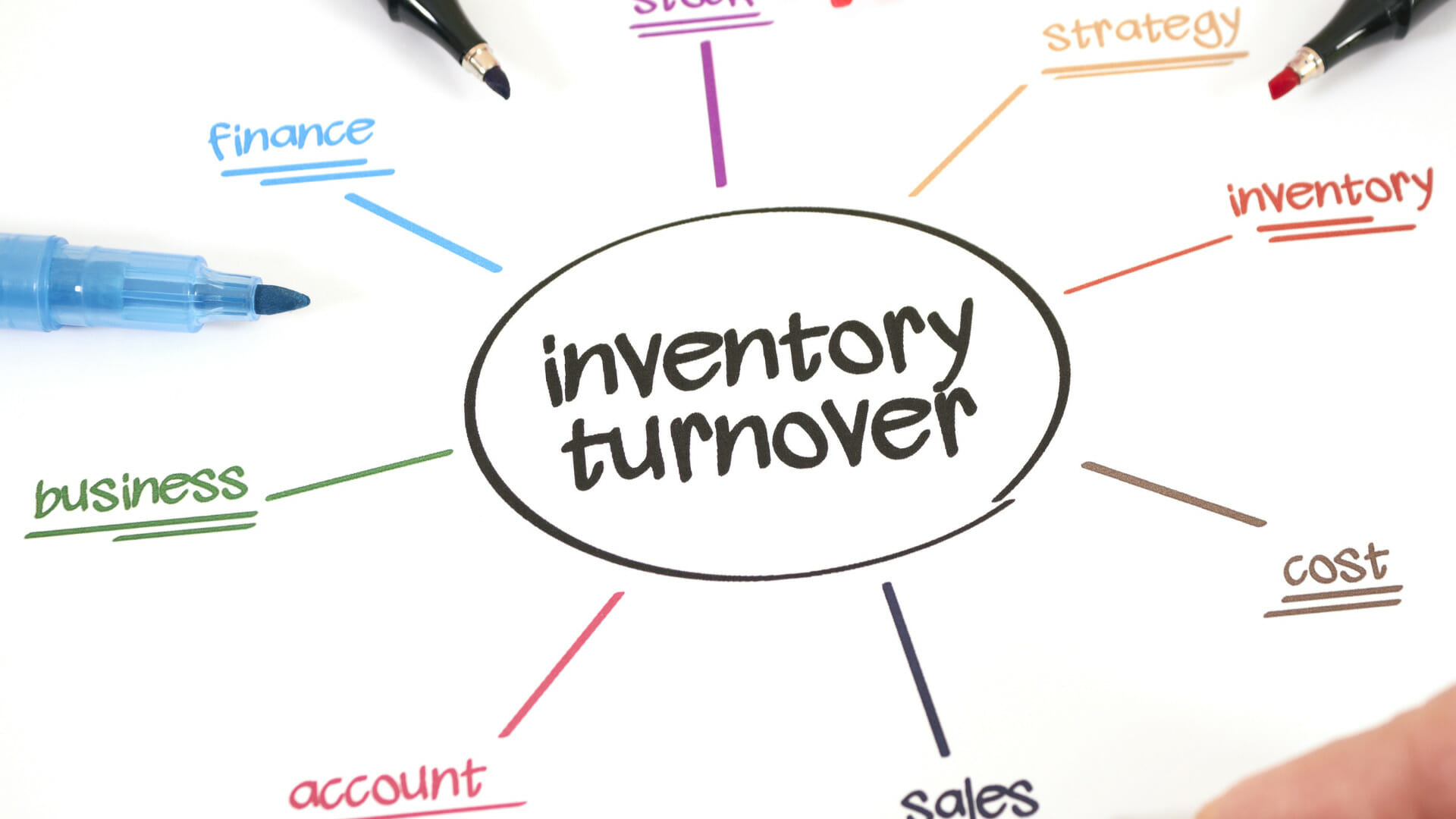
Inventory Management: Key to Business Success - Profit First Nation
Inventory encompasses the stock of raw materials and finished goods a company maintains at any given time. ...more
Uncategorized
August 09, 2023•5 min read

Build Your Business: Tips on Mastering Your Numbers
Business owners face a number of challenges, with the most common struggle being how to manage their finances properly. ...more
Uncategorized
June 27, 2023•5 min read

How to Maximize Your Profits with Done-For-You Services - Profit First Nation
If you’re looking to maximize your business profits, it might be worth considering comprehensive project solutions for your clients. ...more
Uncategorized
June 20, 2023•4 min read

Myths of Entrepreneurship - Ep 19 Blog Post - Profit First Nation
It’s time we dispelled some myths of entrepreneurship. Myths are nothing but widely held (but false) beliefs after all, so let’s all agree to let these myths go here and now ...more
Uncategorized
April 14, 2022•3 min read
Subscribe to Profit First Nation for the Latest News, Offers and Resources
© 2025 - Profit First Nation | All Rights Reserved

